“ ‘Lambert,’ he said, sounding very serious. ‘Lambert, I hear you bought Paris.’ ”
Lou Lambert was telling me a story about a phone call he received from a buddy, a well-respected longtime Fort Worthian. Maybe it’s Lambert’s West Texas roots. Maybe it’s one of the reasons his ventures from Austin to Fort Worth have been largely successful, but the chef-entrepreneur behind Dutch’s Hamburgers and the recent reboots of Roy Pope Grocery and Paris Coffee Shop knows how to tell a story.
Lambert and I were separated by 600 miles, with me at my writing camp in Marathon, from which I could see Lambert’s family ranch, and him at his home in Fort Worth. Over a poor Zoom call threatened by an even poorer West Texas internet connection, I still could not help but be drawn in and loose a chuckle — anticipating both what I knew would come next and dying to hear it.
“You bought Paris?”
“Yup,” Lambert answered his buddy.
To which his buddy said before hanging up, “Well, don’t eff it up.”
Lambert is no stranger to the power (and danger) of nostalgia in the restaurant business. A good chunk of his work preceding the recent reopening of Paris involved reboots: Roy Pope and South Congress Coffee, Jeffrey’s, and Pecan Square (formerly Josie’s) in Austin — all, to name a few, were recognized and publicly prized establishments before Lambert took them on.
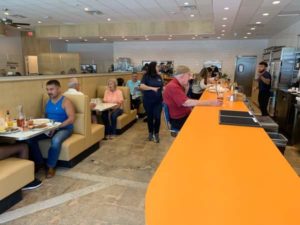
Courtesy Facebook
I was born and raised in Fort Worth. Like many natives, I was also raised on The Swiss Pastry Shop, The Original, Angelo’s and, yes, Paris Coffee Shop. When I approached Paris for the first time in years — barely a week into its formal reopening — a perplexing combination of hope and dread overtook me. Would it still be at its core the Paris of my youth? Would I still recognize it? Or would it be changed enough that it no longer even recognized me?
I can’t count the number of times friends and I ditched class at Arlington Heights High School to pile in a too-small car and roll up to Paris for a breakfast complemented with coffee and cigarettes. “Watch out! Your ass is knocking the gear shift!”
When I needed a nurse for my first real hangover, Paris delivered a bedside manner marked with efficient kindness and just the right dose of grease. Paris was the first place I took my now ex-father-in-law when he visited Fort Worth from Lampasas, because I knew salty food consumed with salt-of-the-Earth people would impress him. It was over breakfast at Paris that I told several friends I was gay.
I realized I was approaching a magical time machine, one secured behind a key-padded door. If I remembered the code, and the code hadn’t changed, I could access the treasure of living in the past and the present at once. I could access the treasure of youth in all its complex bittersweetness. I could access the pleasure of real nostalgia. If the time machine and I did not recognize each other, that particular treasure would remain buried from me forever.
“That’s the reality,” Lambert told me. “Reboots are a double-edged sword, balancing relevance and nostalgia. From a business perspective, reboots are simple. There’s name recognition. There’s a built-in following. They’re simple, but they’re not easy. Everyone’s got an opinion, and if you change the wrong thing, they’re gonna let you know.”
How did Lambert and his partners — long-time operations chief Chris Reale and real estate developer Mark Harris — balance relevance with nostalgia?
“We knew when we bought Paris that it was going to have to have a massive renovation, and we knew that was going to take longer than normal,” Lambert explained, “so we made the decision to stay open through the process instead of going dark.”
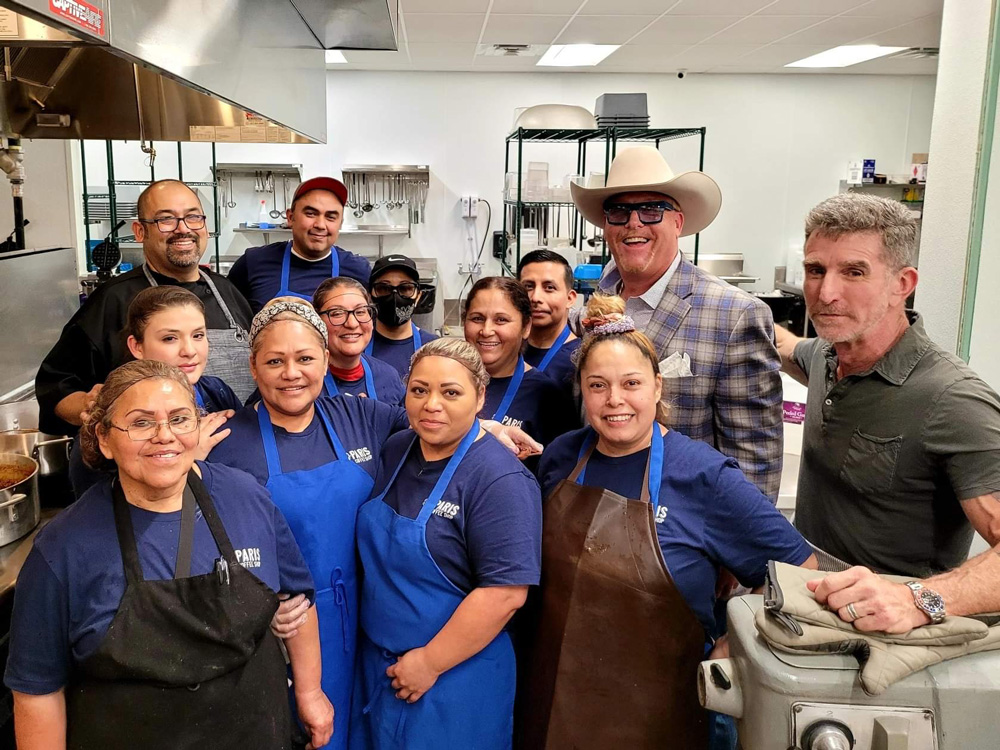
Courtesy Facebook
This was a shrewd decision. From a business perspective, it was almost certainly less expensive than closing for renovations and then reopening. From a conceptual, aesthetic, and experience design perspective, “The decision was pivotal,” Lambert said. “It enabled us to put our people in there. We got to see what worked and what didn’t work. We got to see what needed to change and what couldn’t change. We got to see what was sacred.”
In the restaurant business, there are two primary buckets of concern: the physical (or ambiance) and the food. Elements of both changed.
The original menu was populated only by dishes that could be fried on the flattop in delicious grease.
“I don’t think there was one green thing on the menu,” Lambert remembered. “We had to revamp it to make it relevant to how people eat today — give them more choices and put more integrity into the menu.”
The new Paris does just that.
“Everything has to be made from scratch — scratch cooking,” one waitress told me. “And we’ve added a grain bowl, a redfish, and composed salads, so people can eat healthier if they want to.”
The wisest decision Lambert and his partners made was to buy the rights to Paris’ intellectual property, too. “It enabled us to do our research before making any physical changes. We pulled archival photos of the original Paris — the wood paneling, the counter service, the metal-banded Formica tabletops. We kept it all in essence and just added to it.”
The new Paris does feature an expanded counter, booths where once only four-tops reigned, and though the old tables are long gone, new ones guard the sacred ground, their Formica and aluminum-banded weapons glistening.
My return to Paris after so many years was a little like preparing to see a dear friend who’s just returned from cosmetic surgery. I hoped Paris would be empowered by carefully considered, integrated “updates,” and, I feared it would no longer look at all like the friend I’ve known and loved. The moment I stepped inside, sat, and dug into breakfast, however, both fear and hope dissolved. They evaporated so quickly, I swear I could hear the swoosh of the vacuum created by their departure — a vacuum filled immediately by simple pride.
I’m proud Paris will remain, like it always was, a place where politicians, students, business luminaries, blue-collar tradespeople, and the odd truant high schooler feel welcomed to share a morning and a meal together. I saw representatives of each of those populations on my visit, though thankfully, unlike in the past, none was smoking.
I’m proud Fort Worth is a place where the choreography of efficiency and kindness can still thrive. I’m proud that watching a line cook own the flattop still inspires in us the same awe and respect usually reserved for watching Bruce Lee with a pair of nunchucks.
And I’m proud Lou didn’t eff it up.



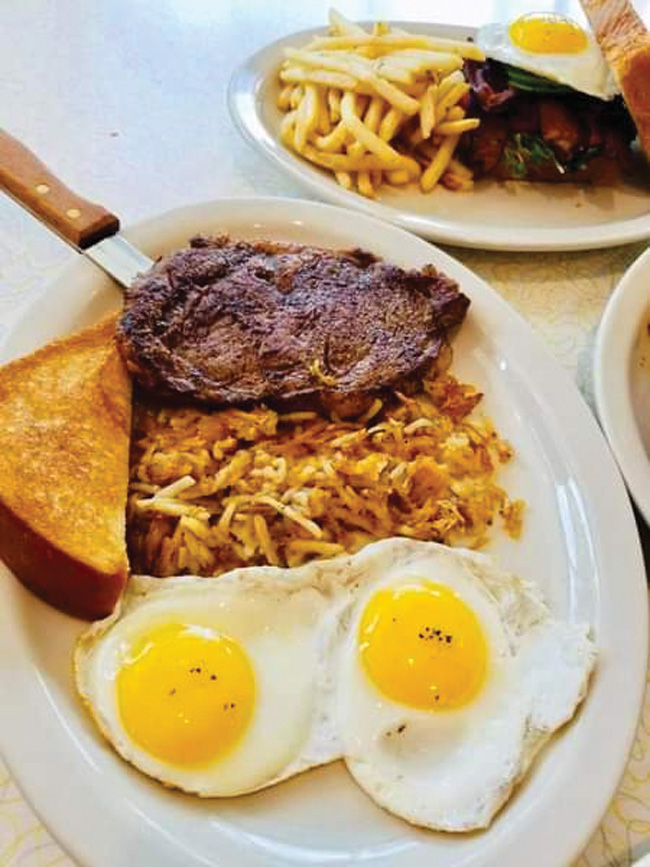
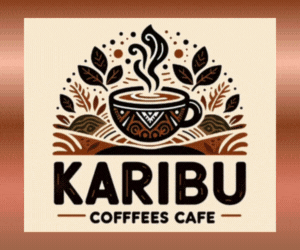
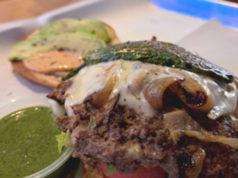
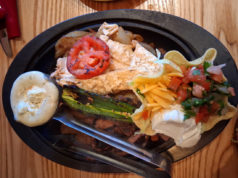
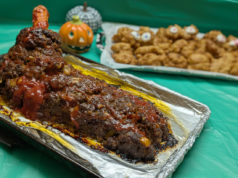





Loved the Paris Coffee Shop of days gone by with friendly owner operator Mr. Mike Smith. Always friendly familiar waitresses. Saturday crowds and the BEST biscuits, honeybuns and pies ever!
Will get back to the iconic place ASAP.